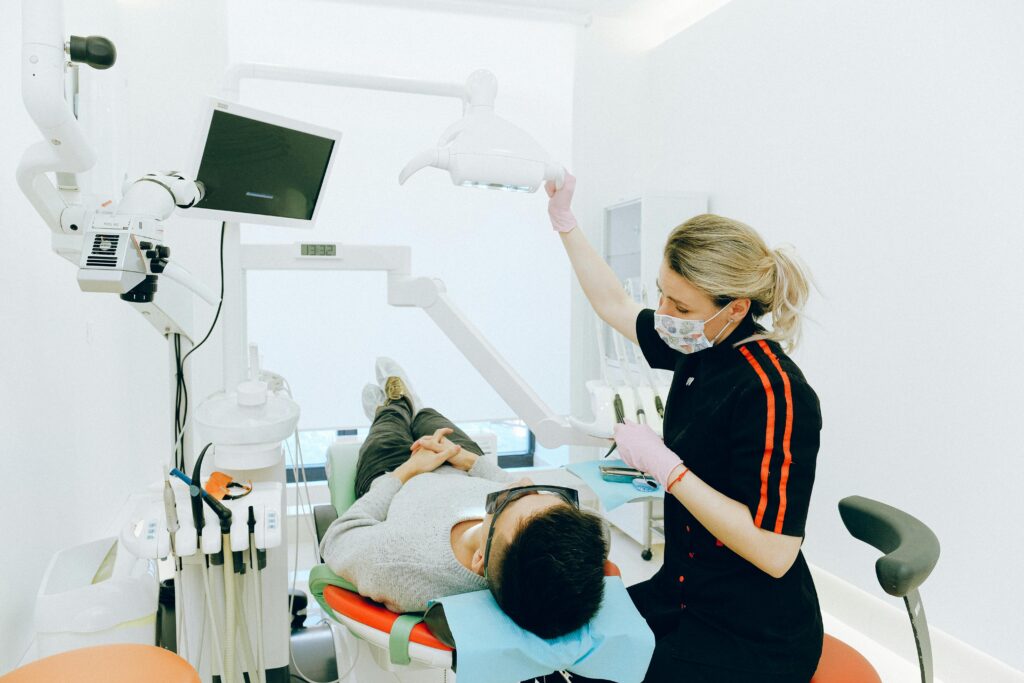Emergency Dentist vs. Regular Dentist: What’s the Difference?
Dental care can broadly be divided into two types: routine dental visits and emergency dental care. But what truly separates an emergency dentist from a regular dentist? Understanding the differences is crucial for making fast, informed decisions when a dental crisis strikes.
What Is an Emergency Dentist?
An emergency dentist specializes in treating urgent dental problems that require immediate attention. These professionals are typically available after hours, on weekends, and during holidays to handle situations like severe toothaches, knocked-out teeth, or infections that can’t wait for a standard appointment.
What Does an Emergency Dentist Do?
Emergency dentists offer immediate care using specialized equipment for rapid diagnosis and relief. Common services include pain management, tooth extractions, treating dental abscesses, addressing dental trauma, and offering temporary interventions until full treatment can be carried out.
What Is a Regular Dentist?
Also known as general dentists, regular dentists handle preventive and routine dental care during scheduled office hours. Services include cleanings, patient education, fillings, crowns, and long-term treatment planning. Their goal is to maintain oral health and prevent issues before they become emergencies.
Why the Difference Matters
1. Availability in Critical Situations
Emergency dentists are accessible during off-hours and weekends, a critical factor when timing can mean saving a tooth or preventing further infection.
2. Specialized Equipment for Emergencies
Emergency dental clinics are often equipped with tools designed for rapid assessments and urgent procedures, which general dental offices may not always have ready.
3. Routine vs. Critical Care
General dentists focus on long-term care and preventive strategies, while emergency dentists provide short-term solutions to resolve immediate pain or risk.
4. Cost and Insurance Considerations
Emergency dental care may cost more due to the urgent nature of the service and after-hours availability. It’s important to check your dental insurance coverage for emergency treatments.
5. Follow-Up Treatment Coordination
After an emergency visit, patients usually return to their general dentist for comprehensive evaluation and permanent solutions.
When Should You Seek Emergency Dental Care?
Urgent dental emergencies include:
- Severe toothaches
- Knocked-out teeth
- Loose or broken teeth
- Gum abscesses or dental infections
- Swelling or bleeding that doesn’t stop
Dental Fistula and Dry Socket
Two common conditions that merit emergency treatment are dental fistulas (signs of underlying infection) and dry socket (painful complication after tooth extraction). Both require expert emergency care.
Non-Urgent Dental Emergencies
Some situations don’t require immediate care but should still be handled soon:
- Dull toothaches
- Minor tooth chips
- Lost fillings or crowns
- Food lodged between teeth causing discomfort
When to Schedule a Regular Visit
Regular visits help prevent emergencies and maintain optimal oral health. Schedule twice-yearly exams and cleanings, or more frequent visits if advised by your dentist.
Benefits of Knowing the Right Choice
Understanding the difference allows you to avoid unnecessary ER visits, reduce dental care costs, and get the right treatment faster. Whether it’s a sudden injury or ongoing oral maintenance, knowing who to call can make all the difference.
Call to Action: Experiencing a dental emergency or want to stay ahead with regular care? Don’t wait. Contact us today for immediate assistance or to schedule your next appointment at one of our convenient locations.
FAQs
What qualifies as a dental emergency?
Severe pain, swelling, bleeding, trauma to the teeth or gums, and infections that compromise oral or overall health qualify as dental emergencies.
Can I see a general dentist for a dental emergency?
If it’s during regular hours and they have availability, yes. However, an emergency dentist is better equipped for urgent, after-hours needs.
How do I manage a knocked-out tooth before seeing a dentist?
Gently rinse the tooth with water (without scrubbing), place it back in the socket if possible, or keep it in milk/saline and seek immediate care.
Is emergency dental care covered by insurance?
Most plans offer some coverage, but it varies. Check with your provider to understand what your policy includes for emergency situations.
What are signs of a dental abscess?
Symptoms include throbbing tooth pain, sensitivity to hot or cold, fever, swelling, and pus. Seek emergency treatment immediately if you suspect one.




